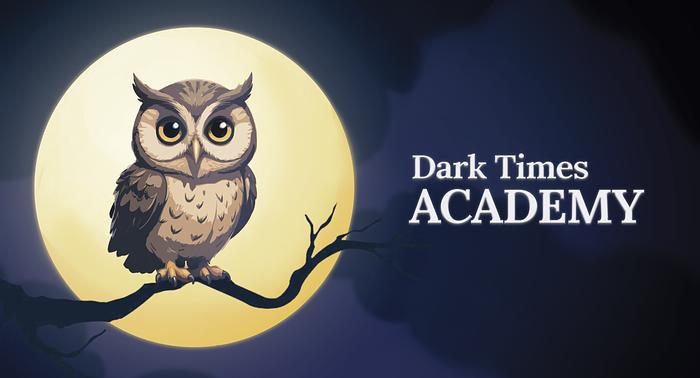Unmasking Theocracy: Project 2025 and the Christian Nationalist Agenda
Sat 14 Jun – Sat 2 Aug 2025 NZST
Check out the course webpage for more details!
Conservative religious and political forces have been working patiently for decades to impose their beliefs on the world. With Project 2025, victory seems within reach.
Join Dark Times Academy and Dr Eric Repphun for an eight-week course where we will learn what Christian nationalism is, where it comes from, what it means for the world, and what we can do to fight back

Instructor
Dr. Eric Repphun has worked as a university lecturer, an instructional designer, and journal co-editor, among many other things. He has a PhD in Religious Studies and has published original research on Mormonism in Battlestar Galactica, religion in the work of Douglas Coupland and Chuck Palahniuk, and different ways to understand the perverse biblical story of the sacrifice of Isaac. He has spent way too much time thinking about the idea of re-enchantment, or how modernity produces its own monsters and its own forms of unreason.
Zoom sessions
14 June - 2 August 2025
Saturdays (NZ/AUS)
NZST: 12:00-1:30 pm
AST: 10:00-11:30 am
Fridays (USA)
EDT: 8:00-9:30 pm
PDT: 5:00-6:30 pm
Course Outline
Week 1: Course introduction - Project 2025 and the contradictions and dangers of Christian nationalism
IN our first week, we will start with a very zoomed-out view and will define the terrain we are going to cover and glance over the “Mandate of Leadership” document from Project 2025. We will ask ourselves a series of questions: What is Christian nationalism? What are the dangers it poses? What contradictions are encoded within its ideas and practices? How do we approach Christian nationalism as scholars, researchers, and humans?
Week 2: Christian nationalist ideas and stories
IN our second week, we will dig more into Christian nationalist ideology, theology, and the narratives. What do Christian nationalists believe? Are these beliefs shared by all Christian nationalists, or are there internal disagreements? What stories does Christian nationalism tell about themselves, faith, religion, and government?
Week 3: Using words to order and divide people
IN our third week, we will delve into how Christian nationalists - and right-wing Christian extremists more broadly - use and abuse language, including how the movement reframes and redefines common words and concepts like “religious freedom” to further its own political and cultural goals. We will also explore how Christian nationalism seeks to impose a gendered and racialised order on human society through coded language and other means.
Week 4 : Is Christian nationalism a set of beliefs or an identity?
IN our fourth week, we will take a break from all the words and get into some statistics. Who calls themselves a Christian nationalist? How do Christian nationalists understand themselves and their movement? At the same time, we will confront a very difficult question: is Christian nationalism defined by a set of beliefs and practices, or is it merely an identity? We will also engage with what we might call a “soft Christian nationalism”, which pervades the thinking of far-right but not explicitly Christian nationalist figures like Jordan Peterson.
Week 5: Christian Purity Culture and the War on Bodies
IN week five, we will grapple with some of the most confronting material in this entire course when we examine how Christian nationalism seeks to control, define, and even define out of existence certain kinds of human bodies. We will delve into the anti-abortion movement, which is a defining part of Christian nationalism, and will also explore how Christian nationalist ideas about purity and pollution define sex, sexuality, gender, and ethnicity. Which bodies are pure? Which threaten the nation with pollution, and what does this mean for how Christian nationalism treats women, LGBTQIA+ people, and other marginalised groups?
Week 6: Declaring war and creating enemies
IN our sixth week, we will look at how the language of warfare defines non-Christians and others as enemies, and what this means at the level of geopolitics. Who is allowed to have authority, and who must be subjected to authoritarian control?
Week 7: Open week / guest speaker(s)
IN our penultimate week, we will catch up with anything we have had to skip, synthesise what we have learned, and discuss any questions that have arisen or any topics anyone wishes to raise. This is a reserve week or one that we can use for guest speakers, debates, etc.
Week 8: How can we fight back?
IN our final discussion, we will focus on some methods for combatting Christian nationalism, taking inspiration from both outside of and within the Christian religious tradition, which has a deep history of social justice activism, from the Quakers who played a major role in the abolition of slavery in the United States to many prominent leaders of the Civil Rights movement. We will look at and discuss some ways people are fighting back, rejecting the imposition of narrow, exclusionary ideas about religion, bodies, order, violence, and identity.
